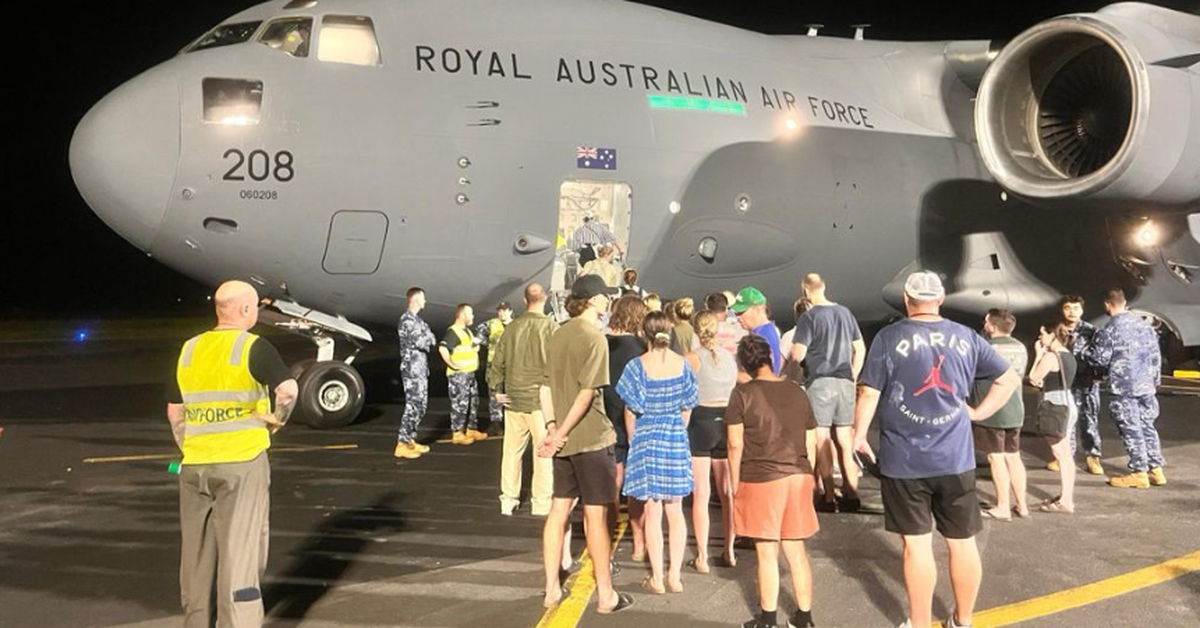‘Unacceptable’: Australian PM criticises China over fighter jet incident

- by Admin
- May 7, 2024

Protests lodged after Chinese aircraft fired flares in path of an Australian navy helicopter above international waters.
Australia’s Prime Minister Anthony Albanese has accused Beijing of “unacceptable” conduct after reports a Chinese fighter jet fired flares in the flight path of an Australian navy helicopter over international waters.
The MH60R Seahawk helicopter was flying above the Yellow Sea on Saturday as part of the United Nations’s efforts to enforce sanctions on North Korea when a Chinese Air Force J-10 jet dropped flares above and several hundred metres ahead of it, Australia’s Department of Defence said late on Monday evening.
“We’ve just made it very clear to China that this is unprofessional and that it’s unacceptable,” Prime Minister Anthony Albanese told Australia’s Nine Network on Tuesday.
Albanese said Australia has raised its concerns through diplomatic and military channels, although Beijing had yet to respond.
The Australian Defence Force personnel were “in international waters, international airspace, and they’re doing work to ensure that the sanctions that the world has imposed through the United Nations on North Korea, due to their intransient and reckless behaviour, are enforced,” he said.
“They shouldn’t have been at any risk,” he added.
This is the second such incident in six months after Canberra in November said a Chinese destroyer had injured Australian Navy divers in Japanese waters by deliberately blasting them with sonar pulses.
Beijing’s foreign ministry denied deploying the sonar, and said no harm had been caused.
Albanese made a breakthrough trip to China last year, hailing improved economic ties after years of bickering and reprisals.
But tensions remain when it comes to security, as Australia moves closer to the United States in an effort to counter China’s expanding influence in the Asia-Pacific region.
Chinese Premier Li Qiang is expected to visit Australia next month, Albanese noted.
“We will make our position clear as well in discussions,” he said.
‘Breach of international law’
On Monday, Defence Minister Richard Marles said the flares were 300 metres (986 ft) in front of the helicopter and 60 metres (197 ft) above it, forcing the pilot to “take evasive action in order to not be hit by those flares.”
The minister said the consequence of being hit by the flares would have been significant. In the event, no injuries or damage were reported.
Australian National University navy expert and former naval officer Jennifer Parker told the public broadcaster ABC that the Chinese use of flares was “incredibly dangerous” and could have led the engines to shut down.
“This isn’t normal by any stretch of the imagination,” she said. “Impeding its flight path I would interpret as a breach of international law.”
In 2022, Australia lodged a protest after a Chinese navy vessel pointed a laser at an Australian military aircraft close to Australia’s northern coast.
In a separate incident in 2022, Australia said a Chinese fighter aircraft “dangerously intercepted” an Australian military surveillance plane above the disputed South China Sea, releasing a “bundle of chaff” containing pieces of aluminium that were ingested into the Australian aircraft’s engine.
Chinese navy ships have been tracked off Australia’s coast several times in recent years, including monitoring exercises with the US military.
The Latest News
-
December 23, 2024TaylorMade drops Hall-of-Fame Christmas posters starring Tiger Woods, Rory McIlroy and Nelly Korda – Australian Golf Digest
-
December 23, 2024Here’s why Golf Twitter lost its damn mind over Team Langer’s PNC victory – Australian Golf Digest
-
December 23, 2024Social Media Ban in Australia: What Online Casinos Can Learn on Responsible Gambling Practices? – Insights from CasinoAus
-
December 23, 2024From smaller homes to screen time, backyard cricket is facing challenges in modern Australia
-
December 23, 2024This quiet Canadian will make you love YouTube golf again – Australian Golf Digest




